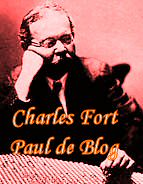Wednesday, June 16, 2004
Australian National University - Teleportation
"The quantum optics group at the Australian National University has leapt ahead of the rest of world with a new feat. It has just demonstrated how teleportation can make encrypted or coded information 100 per cent secure. Last month, the ANU announced it was "the first in the world to demonstrate the sharing of secrets via teleportation. The experiment was conducted by Dr Thomas Symul and PhD student Andrew Lance in collaboration with the University of Calgary, Canada.
For decades it was not even known whether a simple particle such as a photon — the particles of which combined to form light — could be teleported, let alone complex things such as atoms or large groups of atoms such as people. This is due to a long-standing rule of quantum physics called the Heisenberg uncertainty principle, which states that the more accurately a particle is scanned, the more its state is disturbed by the scanning process. Not enough information can be extracted, and so a perfect copy cannot be made. But in 1993, scientists worked out a "Heisenberg compensator" using another longstanding quantum rule — entanglement.
In 2002, the ANU teleportation project leader Ping Koy Lam predicted teleportation of a single atom within three-to-five years.""
"To boldly go . . ." The Age - By Stephen Cauchi - June 14, 2004.
|
"The quantum optics group at the Australian National University has leapt ahead of the rest of world with a new feat. It has just demonstrated how teleportation can make encrypted or coded information 100 per cent secure. Last month, the ANU announced it was "the first in the world to demonstrate the sharing of secrets via teleportation. The experiment was conducted by Dr Thomas Symul and PhD student Andrew Lance in collaboration with the University of Calgary, Canada.
For decades it was not even known whether a simple particle such as a photon — the particles of which combined to form light — could be teleported, let alone complex things such as atoms or large groups of atoms such as people. This is due to a long-standing rule of quantum physics called the Heisenberg uncertainty principle, which states that the more accurately a particle is scanned, the more its state is disturbed by the scanning process. Not enough information can be extracted, and so a perfect copy cannot be made. But in 1993, scientists worked out a "Heisenberg compensator" using another longstanding quantum rule — entanglement.
In 2002, the ANU teleportation project leader Ping Koy Lam predicted teleportation of a single atom within three-to-five years.""
"To boldly go . . ." The Age - By Stephen Cauchi - June 14, 2004.
|

